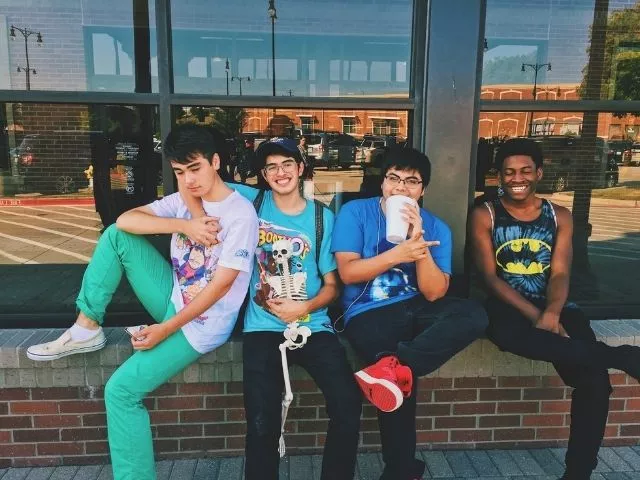Enthusiastic Sobriety
The Mustard Tree foundation provides scholarships, grants and funding for young people entering enthusiastic sobriety programs. Enthusiastic sobriety is a modified 12-step approach to drug and alcohol recovery for young people. As a volunteer-run non-profit, we are passionate about providing access to families and young people who need help, because we’ve all been affected by substance abuse in some way.
While there are many paths to sobriety, we found along our own journeys that enthusiastic sobriety worked in our families.

What is Enthusiastic Sobriety?
The term enthusiastic sobriety refers to an approach to substance abuse recovery for young people. The core of this approach is that being sober must be better than getting high. It’s no secret that young people tend to struggle in traditional drug and alcohol treatment programs, which typically assume that the recovering person is being motivated by the consequences of their drinking / drug use. The trouble is that unlike adults, young people often don’t have decades of consequences to motivate their decision to get sober. To them, doing drugs is still more fun than being sober.
Enthusiastic sobriety has served many thousands of young people by providing teens and young adults with a better, more rewarding version of sobriety that meets them where they are, rather than trying to change who they are.
The Elements of Enthusiastic Sobriety Programs
Having Fun
There are a plethora of reasons that young people do drugs, but anonymous surveys are clear that the most ubiquitous reason is possibly the simplest – to have fun. Adolescence is a time of connecting with new peers, trying new things, and discovering who we want to be. For some adolescents, this journey leads us into some trouble along the way.
This is also one of the main reasons that traditional treatment approaches have such a high relapse rate among adolescents. If being sober isn’t more rewarding than getting high, why stick around?
Enthusiastic sobriety aims to help young people fill the void left by getting high. This is done by creating safe social spaces for young people, weekly sober social events, and an emphasis on connection with an alternative peer group.
Fellowship
Part of the adolescent development process is learning to rely on a peer group outside the family. However, if this peer group contains only individuals who do drugs, the likelihood a young person will remain sober is almost non-existent.
Enthusiastic sobriety programs focus on building positive support groups that young people can rely on.
Parental Involvement
While young people often give the impression that they are rebelling against their parents, they still rely on their family’s love, logic, and approval. The trouble is, many parents struggle to know how to handle the bewildering situations that their substance abusing young person presents to them.
Enthusiastic sobriety programs heavily emphasize parental involvement, parent support group meetings, and beginning the healing process in the family.
12-Step Approach
The 12 steps are the gold standard in the substance abuse recovery world and can even be applied to non-substance related issues as well. At it’s core, enthusiastic sobriety is a 12-step approach, having been modified to fit the more social needs of the teenager / young adult:
- We admitted that mind-changing chemicals have caused at least part of our lives to become unmanageable.
- We have found it necessary to “stick with winners” in order to grow.
- We realized that a Higher Power, expressed through our love for each other, could help restore us to sanity.
- We made a decision to turn our will and our lives over to the care of God, as we understand Him.
- We made a searching and fearless moral inventory of ourselves.
- We admit to God, to ourselves, and to another human being the exact nature of our wrongs.
- We became willing to allow our Higher Power, through the love of the group, to help change our way of thinking and humbly ask Him to help us change.
- We made a list of all persons we have harmed and became willing to make amends to them all.
- We made direct amends to such people, whenever possible, except when to do so would injure them, others, or ourselves.
- We have continued to look at ourselves and when wrong, promptly admitted it.
- We have sought through prayer and meditation to improve our conscious contact with out Higher Power, that we have chosen to call God, praying only for knowledge of His will for us and the courage to carry that out.
- We, having had a spiritual awakening as a result of these steps, tried to carry our love and understanding to others, and to practice these principles in our daily lives.
Why "Enthusiastic"?
The word enthusiasm comes from the Greek word enthousiasmos, which means “divine inspiration” or “to be inspired.” Young people are often looking for ways to be inspired and enjoy life. Drug and alcohol abuse usually starts as the result of wanting to have a good time. Young people who develop substance abuse issues use and drink to the point of obsession. When a teenager stops using there is a tremendous void left. The young person who abuses drugs and alcohol uses in a way that has affects socially, physically, emotionally and spiritually. Recovery must be able to meet the young person’s needs on all these levels. Most importantly, the solution has to be fun and feel good.
Get in Touch!
If you’d like more information about programs, scholarships, or volunteer opportunities, we’d love to hear from you! Please reach out to us!

